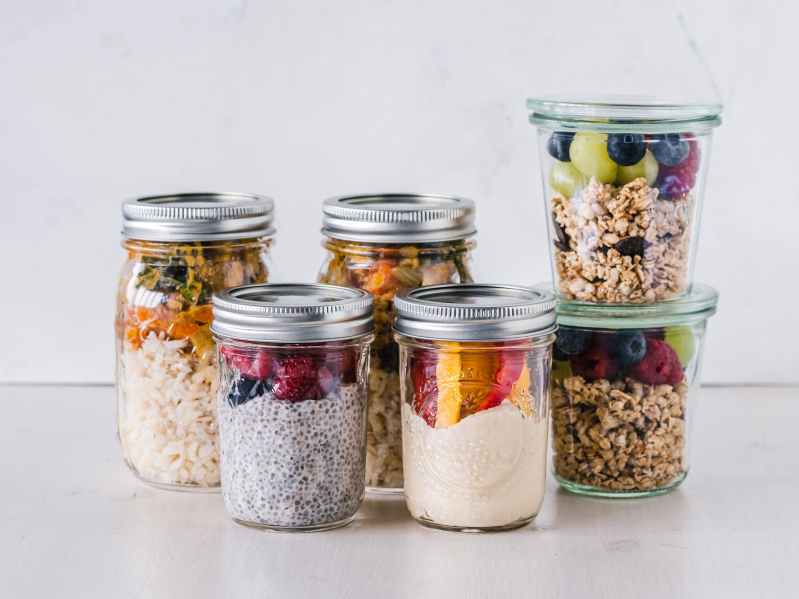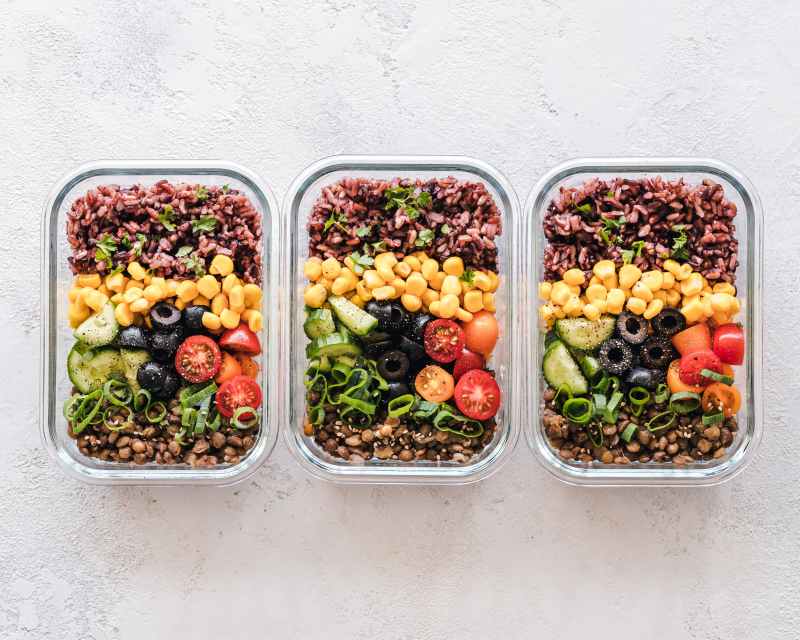Struggling to consistently eat healthy food? Meal prepping, a tried-and-true method, can significantly elevate your commitment to healthy eating. It not only allows you to eat better but also aids in saving money and precious time.

What is meal prepping?
Meal prep is the art of preparing your meals in advance, which is great for eating healthy. The process of washing, chopping, cooking, and storing your favorite nutritious dishes requires a certain amount of planning. Preparing your meals ahead of time simplifies your daily routine, allowing you to make wholesome food choices consistently.
It’s important to keep in mind that most prepared meals require reheating and may require slightly different cooking instructions. In addition, proper food storage is crucial to avoiding illness or spoilage of healthy food. A quality set of storage containers can ensure your food is stored safely and properly. It’s important to label your containers with the date and type of food it contains.
Additionally, the key to success lies in planning your meals meticulously to guarantee a balanced and nutritious diet. If you’re new to the concept of meal preparation, check out this blog post to get you started on your journey to cooking healthy meals at home efficiently, saving both time and money.

What are the benefits of meal prep for healthy eating?
There are countless advantages to adopting meal prep in your routine, especially if your goal is to eat healthy. Having your meals ready to go allows you to significantly reduce the time required to nourish your body with quality food. With a delectable, pre-prepared meal awaiting you in the refrigerator, the temptation of takeout becomes a distant memory.
In an era of rising food costs, meal prep provides an excellent strategy for budget-conscious individuals. Planning your meals in advance empowers you to compile a well-considered grocery list, minimizing impulse purchases and saving money. Not only does this method reduce your overall time spent in the kitchen, but it also simplifies the cleanup process as you are cooking less often.

Healthy meal prep ideas for eating well
Prepping a week’s worth of healthy food doesn’t have to be boring or stressful. Here are a few tips to help the process go a little smoother.
Cook in batches
Cooking large batches of meals at once can help you save time and money. Freeze leftovers for a quick, healthy meal on another day.
For example, you can prepare a large batch of soup on Sunday and freeze individual portions for later in the week. This means that you don’t have to cook every day, and you always have a quick and healthy meal ready at any time.
Cook from scratch
This may be intimidating for some who are just starting out in the kitchen, but when it comes to your health and taste buds, cooking from scratch is always the best option. It ensures that you know exactly what goes into your food and that it’s free of additives and preservatives. Plus, it’s a great way to save money.
For example, you could make your own hummus from scratch with chickpeas, tahini, olive oil, lemon juice, garlic, and other seasonings. This is much healthier and cheaper than buying pre-made hummus at the store. Additionally, it takes no more time to make your own hummus than it does to buy it, so you save time and money.
Overall, meal prepping is an excellent way to save time, money, and energy while still eating healthy. By planning ahead and cooking in batches, you can ensure that you always have nutritious and delicious food on hand, no matter how busy your schedule is.




